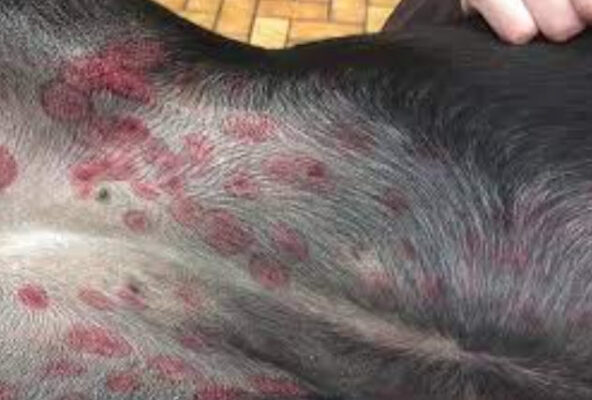No-see-ums cause an uncomfortable allergic reaction to people when they are bitten, but what about animals? Does this little pest affect your pets, or are they only going to bite you? Here’s a closer look at what risk the no-see-um poses to your pets, so you can take the right precautions to protect your animals.
Do No-See-Ums Bite Pets?
Yes, no-see-ums need blood, and they don’t discriminate between you or your pet. If your pet is nearby when a female no-see-um needs a blood meal, she is likely to bite.
How do No-See-Um Bites Affect Pets?
For most pets, the no-see-um bite causes a localized allergic reaction. You may notice your pet itching the area where the bites occurred. Sometimes small, red lesions develop. The exposed skin near your pet’s belly is a prime target for these pests. The reaction will last about a week.
If you notice your pet reacting this way to a no-see-um bite, you do not need to panic. Have your pet evaluated by a licensed Veterinary to rule out other diseases, but if the cause is found to be no-see-um bites, you can treat the bite with antihistamine cream until it clears. Then, take measures to protect your pet from being bitten again by avoiding no-see-um breeding grounds, like wet areas, especially in the morning and evening hours.
No-See-Ums and Farm Pets
While cats, dogs, and small animal pets are not at risk from no-see-ums, people who live in the country and have farm pets need to be aware of the potential risk. Many species of no-see-um carry diseases that are translated to livestock. Ruminants, like cows and sheep, as well as horses and other equines are particularly at risk to these diseases. Goats can also be affected by some of these illnesses.
Biting midges are responsible for over 35 viruses infecting domestic livestock animals across the globe. One of the most dangerous, African horse sickness, is currently found in India, Europe, Asia, Africa, and the Middle East. It has the potential to spread to America through infected horses that come across the ocean to race. African horse virus is often fatal and can affect all equines, including horses, donkeys, and mules.
Cows and sheep are also at risk for an illness called bluetongue disease. This disease causes the animal’s lips and tongue to swell, and this can lead to respiratory problems. For many animals, bluetongue disease is fatal.
So are no-see-ums dangerous for your pets? If you have a dog or cat, the main danger is that of uncomfortably itchy bites. If you have domestic livestock, the danger is far higher. Understanding the risk is a key to helping you take the best possible care of the animals in your life.

